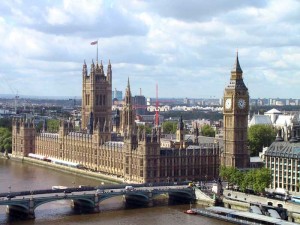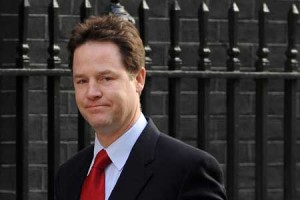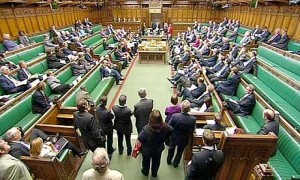
There were some wins for the branch in the new expenses scheme, but a lot more needs to improve
Below is a summary of the changes IPSA has made to the expenses scheme in March 2011 that affect MPs’ staff. We will be raising these issues with IPSA at a meeting on 6 April. If you have any comments to add please email our Political Officer at lauren.edwards@unitepsbranch.org
Staffing Budget
The staffing budget has been increased by around £5k to £115K, which IPSA says is to cover the 1% increase in National Insurance and to provide “a degree of flexibility – for example, to allow for career progression”. We don’t think this is enough to off-set the cut that resulted from transferring MPs’ employer contributions to their staff pensions into this budget and will have no impact on career progression. There is no cost of living increase.
The budget is still based on an assessment of MP staff needs in 2007 by the Senior Salaries Review Board (SSRB) of 3.5 staff members per MP. A lot has changed since then – email campaigns and the recession mean our workloads have increased dramatically. IPSA admits that the average number of staff per MP is now 4.2 staff, so we will question why the budget hasn’t been uplifted to reflect this. IPSA says it will “undertake further work to establish the implications of the rising volumes of casework in some constituencies”. We will ask for more details on this and continue to push for a fresh SSRB review.
IPSA has also not allowed London-weighting in the staffing budget. Staff of London MPs are given higher pay grades in recognition of the higher costs of living in London (just as London MPs are given a London Area Living Payment), and yet their overall staffing budget has not been increased to accommodate this.
We welcome the inclusion of payments for one-off health and welfare costs associated with provision for staffing support, such as eyesight tests and occupational health assessments. We are pleased apprenticeships are now included in the scheme.
Publication of salaries
Thankfully IPSA has accepted our argument that MPs’ staff budgets are already public, and that there is no need to publish individual staff salaries and job descriptions below that, except in line with public sector norms, above £58,200. However, the salary details of connected parties will still be published in full.
Pay grades
IPSA says the staffing budget increase will allow for ‘career progression’ but such a small increase will not have any effect in this regard.
No action has been taken to stop pay disparity within MPs’ offices, with some staff on pre-May 2010 contracts paid less than those doing the same or similar jobs on post-May 2010 IPSA contracts where the pay grades have been set higher. The branch argued in our submission that IPSA should have levelled up instead of allowing a two-tier system to continue. We will be seeking further advice on this issue.
IPSA expects us all to take a pay freeze but we’ll be challenging them on this as the say the MP is our employer and can decide our pay within their scales. They say:
When setting pay for their staff, MPs should have regard to the terms of the wider public sector pay freeze. In recognition of this freeze, IPSA does not expect to receive any requests for salary uplifts for MPs’ staff, except where the staff in question has taken on significant extra responsibilities. Under the terms of the public sector pay freeze, public sector workers earning over £21,000 will not receive any increase in salary. Public sector workers earning under this amount will receive an uplift of £250. If MPs wish to provide this £250 uplift from their staffing budget, they should use the salary amendment form on the IPSA website to request it.
Bonuses
Staff are going to be able to be paid some form of bonus – semantically entitled ‘modest reward and recognition vouchers/payments’ by IPSA – thus allowing MPs’ staff to have the same reward system as IPSA staff themselves. The scheme itself refers only to ‘vouchers’, whilst the guidance note refers to ‘payments’ so we will seek clarification as to how this is going to work in practice. However we do know that information about these payments will be published and that “the level of reward and recognition payments is left to the MP’s discretion, but should be modest.”
‘Connected parties’ will be banned from receiving these payments, which will disappoint staff in this circumstance who often work far in excess of their contract hours. The branch proposed an across-the-board performance-related bonus scheme with a cap of 10% of salary of all staff members and full transparency for the public.
We have always argued that bonuses should be allowed, with necessary safeguards, to reflect the fact that staff are often paid below market-rate, work significant amounts of overtime and are unable to take time-off in lieu instead of a bonus payment as this only increases workloads.
Pooled staff resources
Money for pooled staff resources (such as the Parliamentary Resources Unit, Parliamentary Office of the Liberal Democrats or the Parliamentary Research Service) will continue to come out of the staffing budget, but importantly IPSA will also continue to allow payments to come out of the office costs budget if the MP expects their staffing budget will be exhausted
The union branch argued that MPs should have discretion as to which budget funds for pooled staff resources came out of. However we are pleased that IPSA has continued to allow some flexibility, preventing some of the extra strain that would be placed on the staffing budget if this was the only budget from which payments for pooled resources could come.
Contracts
We are pleased that IPSA has heeded the union branch’s advice that all staff contracts should be approved by IPSA. We argued this was the best security against poor employers trying to set worse pay and conditions for their staff. IPSA has decided to no longer require that pay variations should be approved by them.
Redundancies
IPSA have changed the scheme so that costs relating to staff redundancies will come from the Contingency Fund, rather than the Winding Up Budget. We consider this a neutral move – IPSA’s position of downgrading redundancy payments to statutory has not changed.
Maternity/paternity/adoptive/long-term sick leave
After nearly a year of lobbying from the union branch, we finally have cover for maternity/paternity/adoptive/long-term sick leave written into the actual expenses scheme. It will now come from a central IPSA budget, not the contingency budget, and without caveats, as it should always have been.
IPSA has refused to budge on their decision to remove the salary supplement of £8 a day towards the costs of childcare for staff of MPs employed after May 2010. This means the two-tier system between pre-May 2010 staff who continue to receive the supplement, and post-May 2010 staff who are only able to salary sacrifice will be allowed to continue.
Interns
‘Intern’ and ‘volunteer’ expenses will continue to come out the staffing budget, which will allow the current system of exploiting interns who should be paid at least the National Minimum Wage to continue. The union branch argued for a separate interns fund to pay interns the Living Wage or London Living Wage and will continue to do so.
Staff travel
IPSA has replaced the 24 journey per member of staff cap with an overall cap per MP of 96 single journeys for staff members between the MP’s constituency and Westminster. We think this is a broadly neutral change and welcome the extra flexibility.
Security assistance
IPSA has decided to lift the notional cap on security assistance per MP of £2,000. We welcome this move. As all claims are subject to specialist advice from the police the cap was unnecessary. In their full response IPSA recognises our concern that this facility is not widely known about or understood by MPs and their staff. The branch will be trying to improve knowledge of the security assistance budget amongst branch members and will be requesting IPSA is more pro-active in informing MPs and staff.
What is missing?
Despite saying they intended to allow for trade union subscriptions to be taken at payroll via ‘check off’ – a standard employment procedure – there is no mention in the revised scheme about whether this will be going ahead. We will be seeking urgent clarification on this.
There is no mention of the huge need for a human resources department to deal with staff – despite a survey by the union branch showing that 52% of respondents needed personnel advice or support since the election. We will continue to press for this.
The scheme does not mention giving recognition to the branch nor does it address our concerns with inadequate grievance and disciplinary procedures in their standard contracts.





